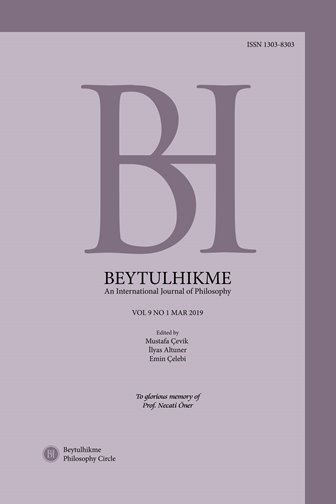Author :
Abstract
Voltaire’in 1755’te yazdığı ve 1756’da yayımladığı Poéme sur le désastre de Lisbonne adlı şiiri, 1755’te gerçekleşen Lizbon depremini konu edinir. Bu deprem çağın Avrupa düşünürleri üzerinde derin bir etki bırakmıştır. Voltaire, Rousseau, Kant ve çağın önemli teologları, depremin olası nedenleri üzerine fikirler ileri sürmüşlerdir. Söz konusu depremi, insanın günahları için Tanrı’nın haklı bir cezalandırması olarak gören teologlar karşısında Voltaire –ve Kant– gibi filozoflar bu düşünceye karşı çıkmışlardır. Voltaire depremin hemen arkasından kaleme aldığı bu şiirde genel olarak teodise anlayışını eleştirir. Fakat Voltaire eleştiri oklarını özellikle Leibniz ve Pope’un teolojik-iyimser bakış açılarına yöneltir. ‘Her şey iyidir’ veya ‘olan her şey Tanrı’nın büyük planı içerisinde bir iyilikle bağlantılıdır’ düşüncesini bu bağlamda eleştirir.
Keywords
Abstract
The poem called Poéme sur le désastre de Lisbonne, written by Voltaire in 1755 and published in 1756 deals with the Lisbon earthquake that took place in 1755. This earthquake had a profound impact on the European thinkers of that age. Voltaire, Rousseau, Kant and important theologians of that age have put forward ideas about the possible causes of the earthquake. Philosophers such as Voltaire –and Kant– opposed this idea in the face of the theologians who saw the earthquake as a righteous punishment for the sins of mankind. Voltaire criticizes the understanding of theodicy in this poem written right after the earthquake. However, Voltaire fires his arrows of criticism, especially to Leibniz and Pope’s theological-optimistic viewpoints. In this context, he criticizes the idea of ‘All is well’ or ‘everything that is connected with goodness in God’s great plan’.





